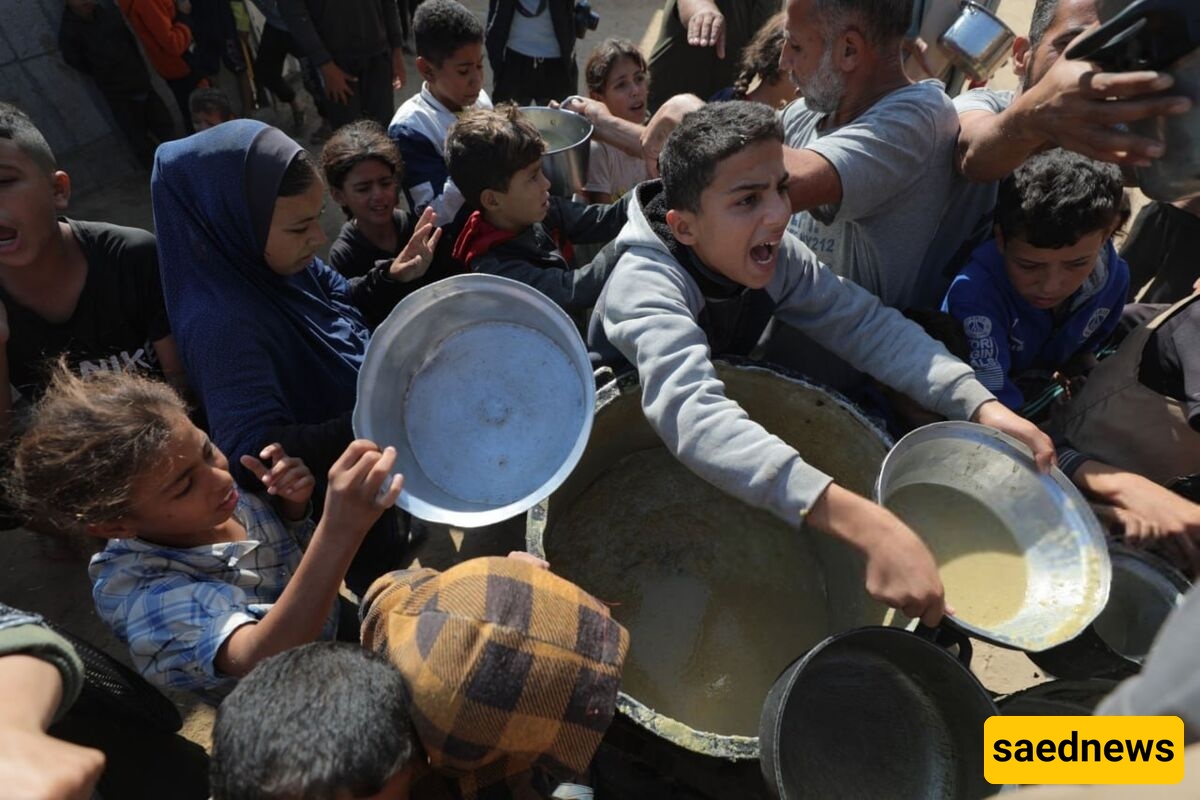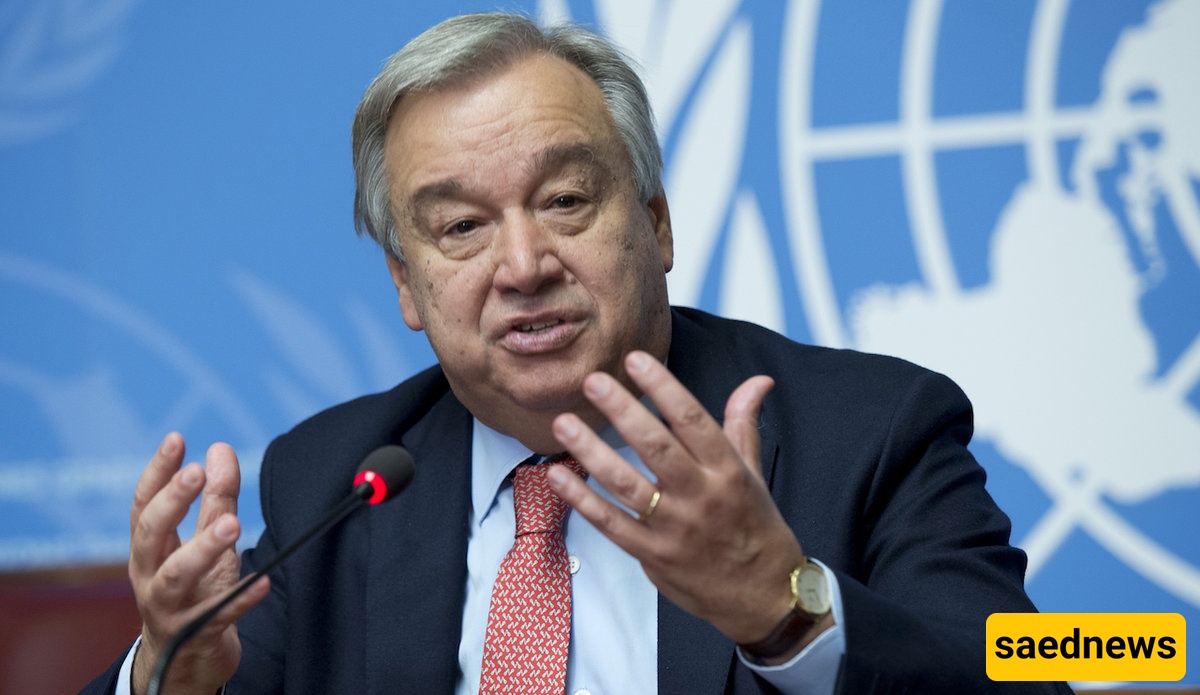SAEDNEWS: With the escalation of the humanitarian crisis in Gaza, new Israeli regulations requiring international organizations to provide sensitive information about their staff and financial resources have effectively halted the delivery of vital aid to residents in the region.

According to Saed News, quoting France 24, Gaza, which has long lived under severe political and military tensions between Israel and Palestinian groups, has constantly faced multiple humanitarian crises. Restrictions on movement, economic blockades, and intermittent military attacks have left a large portion of the population dependent on international aid. According to United Nations reports, over 2 million people in Gaza are in urgent need of food, medical, and healthcare assistance.
Since a significant portion of Gaza’s internal resources is unavailable due to restrictions and sanctions, humanitarian organizations play a critical role in providing essential needs to residents. Over the years, these organizations, through border crossings and with the cooperation of regional and international governments, have delivered millions of dollars worth of food, medical, and infrastructure aid to those in need.
New Israeli Laws and Aid Delivery Restrictions
Since March 2025, Israel has imposed new regulations on the operations of international NGOs in Gaza. Under these laws, all organizations are required to submit a complete list of Palestinian staff, details of financial suppliers, and even their internal programs. Israeli officials claim this measure is intended to “increase transparency and prevent misuse of resources.”
However, international organizations, including Oxfam, Médecins Sans Frontières, and CARE, have stated that providing such sensitive information not only endangers the safety of staff and aid recipients but also violates the humanitarian principles and neutrality of the organizations. From March to July 2025, more than 60 aid delivery requests to Gaza from these organizations were rejected, and many shipments have been stalled in warehouses in Jordan and Egypt.
Humanitarian Consequences of the Restrictions
The new Israeli restrictions have had immediate and direct effects on the health and livelihoods of Gaza residents. Thousands of vulnerable individuals who previously had access to food and medical aid now face severe shortages. The organization ANRA has announced that over $7 million in critical aid is ready for delivery, but it cannot be transported due to the new regulations.
Experts warn that continuing this situation could lead to a widespread humanitarian crisis. Shortages of essential medicines, medical equipment, and food—especially among children and the elderly—increase the risk of death and infectious diseases. These conditions also place widespread psychological and social pressure on Gaza’s population, heightening dissatisfaction and internal tensions.
International Reactions
The United Nations, the European Union, and international human rights bodies have condemned Israel’s restrictions on humanitarian aid delivery to Gaza. António Guterres, the UN Secretary-General, stated that no arrangement violating humanitarian principles and human rights is acceptable and called for the immediate reopening of border crossings for aid delivery.

The European Union also stated in a press release that these restrictions could have serious consequences for regional stability, and the international community must act swiftly to resolve the humanitarian crisis. Additionally, human rights groups have warned that Israel's actions could be interpreted as violations of international humanitarian law, creating international legal responsibilities for the authorities enforcing the restrictions.
Political and Security Dimensions
The new restrictions do not only have humanitarian consequences; they also carry broad political and security implications. Some analysts believe that Israel, by imposing these restrictions, aims to increase political pressure on Palestinian groups and regional governments. This measure could be used as a tool to control the flow of aid and strengthen Israel's political influence in upcoming negotiations.
On the other hand, the suspension of international aid could heighten tensions and dissatisfaction among Gaza's population, creating conditions for further violence and instability. Security experts warn that the continuation of the humanitarian crisis will significantly affect regional security and could lead to the escalation of local and regional conflicts.
Legal and Humanitarian Analysis
From an international law perspective, the restrictions imposed on the activities of humanitarian organizations could violate fundamental principles of the Geneva Conventions and international regulations regarding the protection of civilians in conflict zones. The core principles of humanitarianism and the neutrality of international organizations require that aid reach those in need without obstacles.
Non-governmental organizations have warned that continued restrictions could have a counterproductive effect, not only worsening the humanitarian situation but also undermining the credibility of organizations and public trust in international aid. This situation could also lead to a reduction in global financial contributions and resources for aid to Gaza.
Outlook and Solutions
Given the severity of the crisis, the international community must take immediate and coordinated actions to reopen crossings and facilitate the delivery of humanitarian aid. Proposed solutions include:
Establishing a transparent and secure mechanism for delivering aid without the need to disclose sensitive information about staff and financial sources.
Applying diplomatic pressure on Israel to respect humanitarian principles and international law.
Cooperating with regional countries to facilitate the passage of aid through alternative and secure routes.
Increasing financial and logistical resources for non-governmental organizations to address delays and shortages.
If these measures are implemented, it would be possible to prevent the worsening of the humanitarian crisis and improve the living conditions of millions of people in Gaza.

